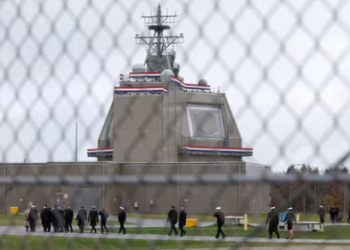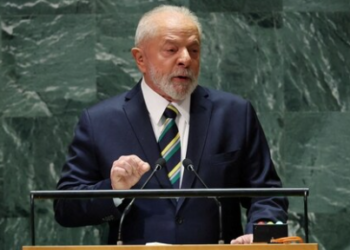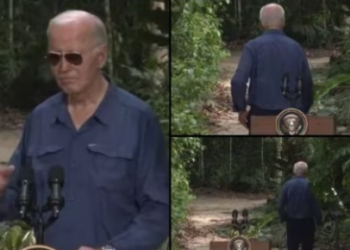The vote on the Brazilian-drafted resolution had been postponed twice in recent days as the United States sought to facilitate aid access to Gaza through diplomatic channels. In Wednesday’s vote, twelve members of the Security Council voted in favour of the resolution, while Russia and Britain abstained.
U.S. Ambassador to the United Nations, Linda Thomas-Greenfield, addressed the 15-member council after the veto, emphasizing the need to prioritize diplomacy to address the humanitarian crisis. She stated, “We are on the ground doing the hard work of diplomacy. We believe we need to let that diplomacy play out.” She acknowledged the importance of resolutions but stressed the necessity of aligning actions with the facts on the ground and supporting direct diplomatic efforts.
Traditionally, the United States has shielded its ally, Israel, from Security Council actions, and this veto reflects the U.S. stance on the Israel-Hamas conflict.
Russia’s U.N. Ambassador, Vassily Nebenzia, criticized the U.S. action, describing it as hypocrisy and double standards. He referred to a Russian-drafted resolution calling for a humanitarian ceasefire, which failed to pass on Monday.
U.N. Secretary-General Antonio Guterres also called for an immediate humanitarian ceasefire to allow for the release of hostages and the delivery of humanitarian aid to Gaza.
As a result of the U.S. veto, Russia has requested the convening of an emergency special session of the 193-member U.N. General Assembly on the conflict. In the General Assembly, no country holds veto power, and resolutions passed there are non-binding but carry political weight.
U.N. Middle East peace envoy Tor Wennesland expressed concern about the potential escalation of the conflict, stating that there was a “very real, and extremely dangerous” risk of an expansion of the conflict. He added that the situation could have profound implications not only for the Israeli-Palestinian conflict but for the entire Middle East.
While the diplomatic efforts continue, the Israel-Hamas conflict has entered its 13th day, and the Israeli Defense Forces have faced skirmishes with Hezbollah. The IDF reported rocket launches from Lebanon into Israel, with some being intercepted. In response to anti-tank missiles fired from Lebanon, the IDF retaliated, and an IDF UAV destroyed a terrorist cell associated with Hezbollah.
The conflict has had real-world consequences, and tensions persist, making diplomatic efforts and humanitarian aid even more critical in the region.








 India
India












